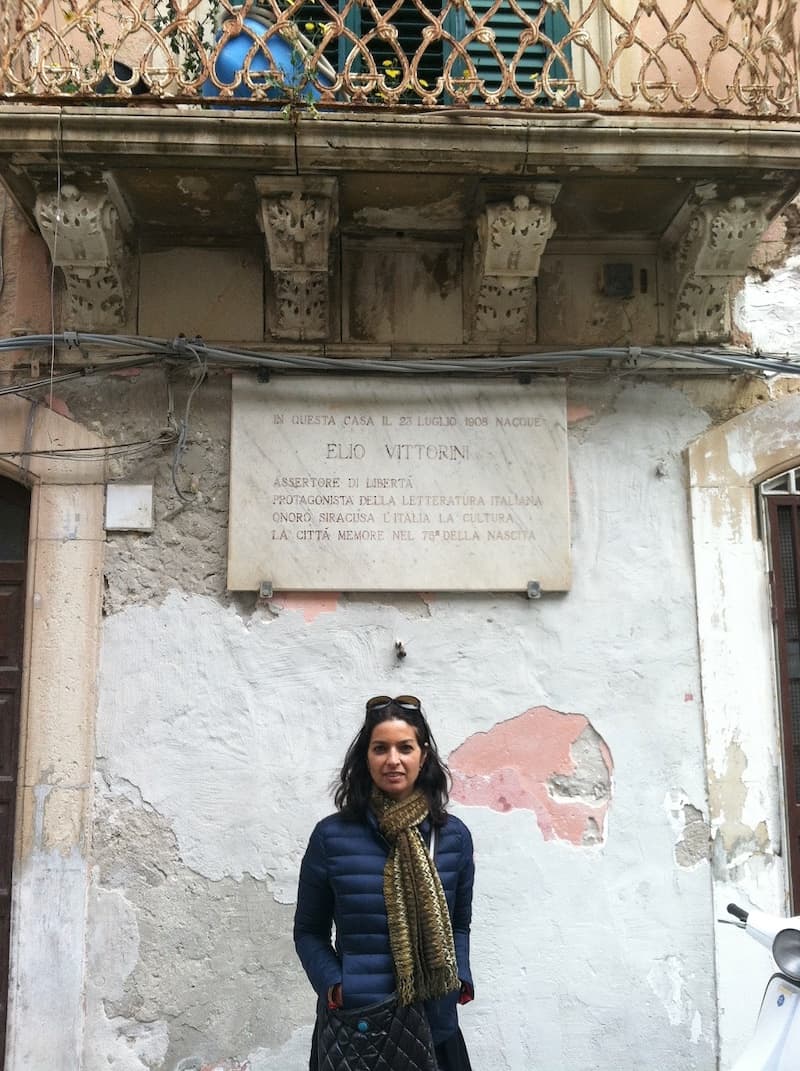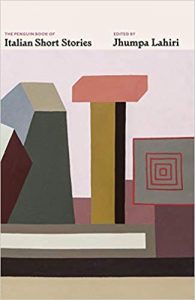 The PEN Ten is PEN America’s weekly interview series. This week, in celebration of National Translation Month, PEN America’s Public Programs Manager Lily Philpott speaks with Pulitzer Prize-winning author Jhumpa Lahiri, editor of the forthcoming translated collection The Penguin Book of Italian Short Stories (Penguin Classics, 2019).
The PEN Ten is PEN America’s weekly interview series. This week, in celebration of National Translation Month, PEN America’s Public Programs Manager Lily Philpott speaks with Pulitzer Prize-winning author Jhumpa Lahiri, editor of the forthcoming translated collection The Penguin Book of Italian Short Stories (Penguin Classics, 2019).
1. What was the first book or piece of writing in Italian that had a profound impact on you?
The first author I read in Italian was Alberto Moravia, when I was in graduate school. Even though, at the time, I was looking up every other word in the dictionary, I was immediately struck by the precision of his language and the emotional power of his work. I find his prose is at once clean and incandescent, a beautiful combination.
2. What did your editorial process look like while compiling The Penguin Book of Italian Short Stories? How do you maintain momentum and remain inspired?
The process took over three years from start to finish, and I was moving frequently back and forth between Princeton and Rome throughout that time. The work of editing the book took place alongside my own writing, translating, and teaching. I consulted many friends and colleagues in both Italy and the United States, and I rummaged in flea markets and second-hand bookshops in Rome, as a number of these stories appeared in books that were out of print or otherwise hard to come by. I also spent long hours in Firestone Library, at Princeton, discovering additional authors in the stacks. It took over a year to arrive at the 40 included in the volume.
“The process of translation makes clear that no one language has power over another.”
3. How can writers affect resistance movements?
I believe that all writing is a form of resistance. The aim of literature is to contradict convention, to challenge banality, to turn reality on its head, and to defy the passage of time. Translation takes things a step further. The process of translation makes clear that no one language has power over another. Many of the Italian writers in the anthology translated as a way of challenging and opposing Fascism. A willful act of border-crossing, translation is a means of rejecting and contradicting the xenophobic mentality circulating throughout much of the world today.
4. What is your favorite bookstore, or library?
My favorite library in Rome is the Centro Studi Americani, located in the Ghetto, a place that has inspired much of my writing in Italian. My favorite bookstore is the Libreria Trastevere whose extremely helpful staff suggested and special-ordered some of the authors in the anthology. In Princeton I love Labyrinth Books where I stop to browse several times a week and can also speak in Italian with the owner. Firestone Library, a paradise of mid-century modern reading chairs and over eleven million holdings, makes me wish I could live forever.
5. What is the last book you read? What are you reading next?
I spent much of the summer reading several books by Clarice Lispector in Italian translation. I am currently reading a version of Ariosto’s Orlando Furioso with commentary by Italo Calvino.
“Literature enables us to further the conversation, as controversial as it may be.”
6. What do you consider to be the biggest threat to free expression today? Have there been times when your right to free expression has been challenged?
I would like to answer this question from the point of view of a teacher and a reader. I am perplexed by the notion that literature should not distress the reader. There have been times, in the classroom, when I have been torn between the desire to introduce my students to the works of a great writer and the fear of upsetting or offending them. Kafka, Hemingway, and Primo Levi are just three examples. If we are to remove “disturbing” literary works from the syllabus, the conversation about literature, and therefore about history and the human experience, will be both severely compromised and untrue. Literature exposes us to distress, violence, injustice, and despair by means of a filtered process, through the lens of art. At times I fear we are straying from that perspective. Literature enables us to further the conversation, as controversial as it may be. There is a difference between provoking and offending.
7. How does your identity as an editor and translator shape your creative work?
Editing The Penguin Book of Italian Short Stories has opened my eyes not only to the works of new authors in another language but to a different attitude, generally speaking, toward writing. Literary activity in 20th-century Italy was marked by extraordinary experimentation and collaboration. I draw inspiration from writers who moved freely between languages, who worked in distinctly different styles, whose identities, both literary and personal, were defiantly hybrid. As for translation, for those fortunate enough to know another language well, it is by far the best way to learn to write and to improve one’s writing.
8. What advice do you have for young writers, editors, and translators?
Be patient, remain forever curious, write for yourself and yourself only, and devote as much time and energy as humanly possible to reading.
9. Which writer, living or dead, would you most like to meet? What would you like to discuss?
I would like to talk to Beckett about self-translation.
 10. The collection you edited for Penguin shines a spotlight on Italy’s vibrant short story tradition. In your introduction, writing about a period after the Second World War when literary magazines publishing short stories flourished, you write: “[I]ndividually published short stories, free from the economic machinery of book publishing, are by definition autonomous texts: a source of resistance, a means for creative risk and experimentation.” Can you speak further about the significance of the short story throughout Italian culture and history?
10. The collection you edited for Penguin shines a spotlight on Italy’s vibrant short story tradition. In your introduction, writing about a period after the Second World War when literary magazines publishing short stories flourished, you write: “[I]ndividually published short stories, free from the economic machinery of book publishing, are by definition autonomous texts: a source of resistance, a means for creative risk and experimentation.” Can you speak further about the significance of the short story throughout Italian culture and history?
What the 40 authors in the anthology demonstrate is how infinitely elastic and regenerative the short form can be. The short story in Italy took root in the 13th century and remains a vehicle for creative shifting and exploring. Primo Levi’s stories allowed him to reinvent himself from a writer associated with the Holocaust on the basis of his first two books to one simultaneously preoccupied with entirely different subjects and themes. Some of Italy’s greatest poets also wrote masterful short stories, which makes sense, given that I think stories have more in common with poems than with novels. Calvino called the short story “the true inclination of Italian literature.” His love for the form is evident even in the construction and sensibility of his longer works. Last but not least, this anthology contains stories written by women that are narrated from the male point of view and vice-versa, further underscoring the freedom, for those who practice the short form, to transgress.
Jhumpa Lahiri received the Pulitzer Prize for her debut story collection, Interpreter of Maladies, which this year is celebrating its 20th anniversary. She is also the author of The Namesake, Unaccustomed Earth, and The Lowland, a finalist for both the Man Booker prize and the National Book Award. Lahiri has written three books in Italian. Her translation of Domenico Starnone’s novel Trick was a National Book Award finalist for Translated Literature, and her translation of his novel Ties was a New York Times Notable Book. She lives in Rome, Italy, and Princeton, New Jersey, where she is a Professor of Creative Writing at Princeton University.
